
Skype – parents of the South Caucasus: labor migrants and their families back home
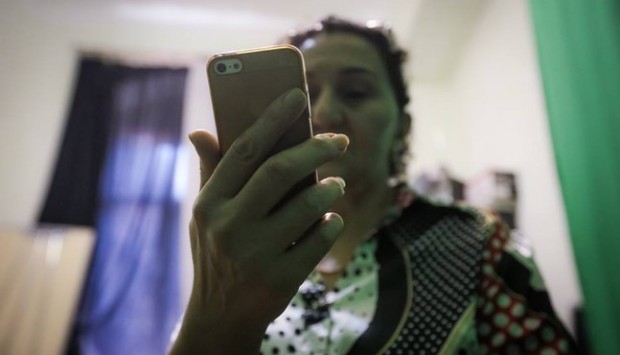
Summer time. Time for vacation, for breaks, for trips and meetings and get-togethers. A time for family. In parks and cafés, you can see parents strolling about with their children. From the outside, they might appear to be models of familial felicity — however, for many of them, this might be the only month, or maybe even the only week, during which they can spend time with their children.
Fathers and mothers who work abroad and are absent from home for long stretches of time are typical for the South Caucasus. But few want to speak openly about this phenomenon and its consequences, because the long – term absence of a parent can often lead to the dissolution of the family, and to the creation of a double life for those who choose to find work abroad.
A group of journalists from the South Caucasus tried to find out more about how the phenomenon of labor migration affects these families.
Families in the Care of Skype
Anahit: “My husband would kiss the screen whenever we spoke…he wanted so much to convey his affection.” (Armenia)
Aram celebrated his 10th birthday with his mother, Anahit, and his two year old sister, Gohar. And, well, his father was there, too — only by Skype, live, from Moscow. “My son blew out the candles, and from all sides of the screen we started to applaud and congratulate him,” Anahit recounted. “My husband, Vagram, kissed the screen . . . he wanted to hug his son, to convey his affection and love . . . And my younger daughter simply cried and cried. And asked her father to come out of the screen, and to return home . . .”
Anahit says that there are no longer any men on her block; only women and children. The men generally come home several days before New Year’s Eve, but leave for Russia three months later.
Nata: “There’s no way out of this situation.” (Georgia)
In Nata and Vakhtang’s family, things are even harder. A former English teacher, 34-year-old Nata and her husband wait for summer all year in order to see their 10 year old son, Nika. Nata and her husband live in Israel, and have a catering business for Georgian cuisine. Nika lives with his grandparents in Georgia.
“We never had our own place. It’s expensive to rent, and we didn’t have the income for it. And we didn’t even discuss the idea of living with our parents. They were at first against our marriage, and refused to help us out, both financially and with our housing. In Georgia, there were no possibilities to find normal, well-paying work. In the school, they paid horribly, and we didn’t have any contacts or acquaintances who would have been able to help us find a job in a well – paying place.” says Nata.
And it’s been like this for eight years already. Originally, according to Nata, their son was with them, but he’s already been in Georgia for five years because he had to go to school.
“We wanted our son to go to school in Georgia so that he wouldn’t have any problems with the language and so that he would know the culture. We speak with our son everyday. We talk by Skype, or by Viber. By Skype, we speak two to three times a week. I fly two or three times to Georgia, and I spend all summer there with him. We miss him like crazy.”
Almost all of her relatives left for Israel in the 1990s to look for work. Nata says that she and her husband plan to live in Israel another three to four years at most.
“There’s a feeling of a certain… unfairness to this entire situation. When you see families, where everyone supports one another, and they don’t need to dive off into the unknown, in order to somehow, someway, support the future of their children. But this is our choice, and we don’t regret it because there’s no other way out. Of course, we are going to return to live in Georgia. I don’t see another place I could possibly live. I hope that things work out for us in the next few years.”
Ani: “My husband doesn’t talk with his children. He hasn’t seen them take their first steps . . .”(Armenia)
In the glance of 30-year-old Ani Makunyan, you can detect a certain hint of sadness and pining. In her arms she carries her one- year-old daughter, who smiles and hugs her mother with love.
Ani, a mother of three children, lives in the village of Lichk in Armenia’s southeastern Gegharkunik region, which borders Azerbaijan. She has been married already for 10 years. But if you take into account the regular absence of her husband, it’s only been about five years that she has lived with him. She admits that she misses her husband with whom she lives only three months a year. She misses him dearly. They have three children and she is bringing them up largely on her own.
Her husband, who works in Moscow, earns a little more than $500 a month working in construction. He sends home half of his monthly earnings.
“We’re always waiting. We know that he leaves in March, but that he’ll be back in November. Last year, in November, Rima was born, but my husband saw her only three months later. He doesn’t see his children, doesn’t talk with them, doesn’t see their first steps, doesn’t hear their first words. We have grown apart, and we depend entirely on Skype. The only thing that calms and soothes us is that this problem doesn’t affect only us, but the entire village. In practically all of the families here, the head of the family is missing.”
Narmina: “With time, he became someone else for the children, a stranger . . .” (Azerbaijan)
Narmina is already 55 years old. Recently, she saw her 30-year-old son get married. And her daughter was married five years ago.
Narmina says that when her husband left for Ukraine to look for work, the children were already in kindergarten; for the past 30 years, they have seen him only once a year, for a month. He works a snow plow in Moscow, and sends home around $200 a month.
“The first years, the children and I would await his return with excitement . . .we would get ready for the summer, when he would be coming home. But with time, he became a complete stranger for the children. And me . . .well, me? What am I supposed to do? Then, we needed money for the children, and now they need it for their children, my grandchildren. I was so young when he left for Ukraine. Now I’m already a grandmother. I bitterly laugh that in Ukraine they’ve already changed the president three or four times, but my husband is still there . .!”
Statistics and Reality
Keeping track of who leaves the country and for what reason is no easy task. As a result, accurate and significant data pertaining to the number of migrant laborers leaving the South Caucasus is hard to come by. Moreover, governments may tend to under-report the number of people relocating abroad for work, in order to maintain an image of economic viability in the country.
According to the National Statistics Service of Georgia, more than 10,000 Georgian citizens leave the country every year. This statistic doesn’t show whether they leave for seasonal work, or whether they move abroad permanently. After the collapse of the USSR in 1991, female labor migration was popular and widespread in Georgia. Women left for Russia, Turkey, Greece, Italy and the USA. But many of them took visas for short periods of time, and later stayed in these countries illegally.
And here is where the separation and dissolution of the region’s family structure begins.
In Armenia, there is little accurate data concerning the number of migrants abroad. There are sources of information — for example, the number of border-crossings, which, of course, do not show how many people are immigrating permanently or looking for work. Butgovernment commissioned research carried out by the Slavonic University of Armenia shows that nearly 1.5 million people have left the country since Armenia’s independence in 1991.
The number of labor migrants is nearly half this number; that is, approximately 750,000 people. Ninety-five percent of them leave for Russia. Such active labor migration came about after the fall of the Soviet Union, when the area’s socio-economic problems came home to roost with nearly all Armenian families. Chairman of the Armenian Social-demographic Initiative, Ruben Yeganyan notes that in Soviet times, annual labor migration was equal to about 30,000 – 40,000 seasonal workers, but these were largely residents of mountainous regions.
“At that time, migration was strategic for development, but now it is only for survival, for subsistence. And this is the only rational method by which people can make at least something of a living. Today, the number of seasonal migrants is about 80,000 – 100,000. Approximately 85% of them are men, and only 15% women. Moreover, a large number of these migrants are youth”, notes Yeganyan.
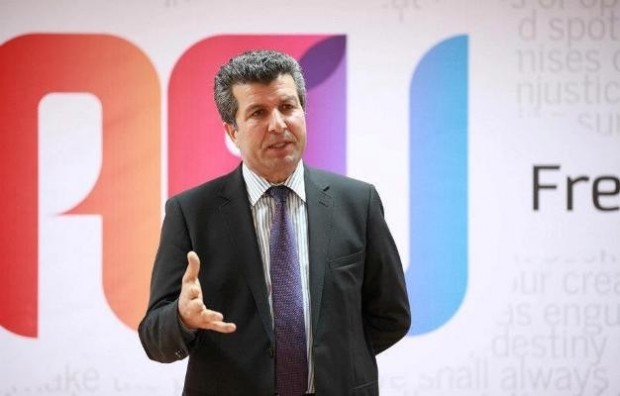
Labor Migrants in Azerbaijan: Skewed Data?
According to Azerbaijan’s State Statistical Committee, more than 1,600 labor migrants left the country in 2015. In 2016, this number decreased to 238.
But the director of Azerbaijan’s Migration Center, Alovset Aliyev, is suspicious of these numbers. There is no system in the country that keeps a tab on who leaves the country to earn money or on who leaves the country as tourists or for other reasons.
“For this reason, numbers which have been published by the statistics committee are not credible. More than 10,000 individuals leave the country every year as labor migrants.”
Moreover, Aliyev says that there is no registry that records the gender of these migrant workers.
“According to observations and surveys which have been conducted at various times, 95 % of migrant laborers are men. They go to work in Russia and Ukraine’s markets.”
Ghost Towns of the Caucasus
In the windowpane of the only shop in the Armenian village of Azatek, hangs a solitary announcement: “To Russia.” The announcement offers busses at affordable prices to Voronezh, Krasnodar and Sochi. Residents of the central Geghard and northern Shirak regions have also started using the long roads to Russia. According to Yeganyan, who cited the National Statistics Service of Armenia, almost every other man leaves Gyumri – the second largest city in Armenia – for work abroad.
“Yesterday, a few more people left. Here, people live without a future. There’s no water, technology or successful agricultural activity. It’s expensive to keep cattle. People are patient, and wait . . .and then they give up and leave. They go practically without money. Parents receive their pensions and give it to their for the road. Or they cut up a cow, and sell the meat for money . . .” says Karbid Petrosyan, the owner of the store in Azatek.
A resident of Azatek, 56-year-old Zhaneta Nersisyan, has been living with her two daughter-in-laws and grandchildren for 12 years, while her two sons have lived and worked in Russia.
“I wait around for them the entire year, waiting for them to return. But what can we do? My younger son, who is 31, comes once a year, in October. My older son is three years older…I’m afraid, will never come home again . . .” says Zhaneta.
In the central regions of Azerbaijan, in Sabirabad, Imishli and Saatli, it’s also rare to find young men. Newlywed husbands don’t stick around for long; they leave to earn money abroad. Bazars in Russia and Ukraine await the husbands of newlywed Azerbaijani women, as they’ve been waiting for the past 20 years for other “workaholics of the Caucasus.”
Lala, a young, 20-year-old woman from Sabirabad with two young children, lives with her husband’s family. She has only seen her husband, Bakhtiyar, three or four times after her wedding. Two days after the wedding, her husband left to work in Nizhny Novogord. Her husband was the fourth and youngest son in the family. All of her brothers-in-law are working abroad and married. In her father’s home, there are four daughters-in-law, a mother-in-law, a grandmother and innumerable children. Almost half of the children still haven’t seen their fathers. They talk on the telephone and rarely through Skype.
However, in Georgia, the situation is a little different. According to Giorgi Kadagidze, the former president of the National Bank of Georgia, women have played the role of bread winners in the country since its independence: “If you look at the beginning of the 90s, when the Georgian economy lost 70% of its economic assets and growth as a result of wars and other reasons, it was women that saved the country from starvation in this time period. I mean those women who left the country for other destinations, and from where they send home money every month to their families.”
Thirty-three-year-old Lia was still a schoolgirl when her mother left to work in Italy to look after the elderly. She sold her gold, borrowed some money and left. Lia stayed behind in Georgia with her brother. Her neighbor left for Italy to work and look after the elderly as well. Some of her other acquaintances have also decided to take a stab at their happiness abroad.
The experience has been difficult for Lia. “On one hand, you’re a young girl and a child, and you want your parents to take care of you, and, on the other hand, you’re already the only woman at home and you are responsible for everyone . . .”
“There were no computers then, in the early 90s – no smartphones, not like now . . . And, of course, no water or electricity for days on end. For that reason, it was hard to speak to my mother by telephone. Now, I speak calmly about this. But as a girl, I really needed my mother, and my brother did, too. But she wasn’t there. But I understood that we wouldn’t have had bread or clothing if it weren’t for her earnings coming in from abroad.”
On-Screen Mothers and Fathers: Is the Family Model of the Caucasus Changing?
In the southern Armenian village of Azatek, women who were left behind say that it’s already been 20 years that “the strong, tight – knit Armenian family” has turned into a family which is completely dependent on Skype, the cell phone and the computer. Fathers don’t see their growing children. Women don’t know complete family happiness. Sometimes, children don’t recognize and don’t come to greet their fathers when they come home . . .
Lia says that because her mother, Nana, was living illegally in Italy, she didn’t come back to Georgia for ten years. Officially, she was not divorced from her father, but they weren’t together, either.
“Initially, my parents spoke on the telephone, but four years later they were completely estranged from one another. My mother came back to Georgia 10 years later, when she was able to have her documents put in order. But then she left again. And now she has been in Italy ever since. I am grateful to her. She sacrificed a lot for us. My brother and I were able to get a higher education. But she didn’t want to return, because she is able to make a living for herself where she is looking after the elderly – she makes around 500 euros a month. Here, she wouldn’t be needed by anybody. She wouldn’t be able to find work here, and a pension of 160 lari ($70). . . well, that’s not much of a solution. I love her, but we’re not entirely close. I grew up without her, and now we see each other once a year.” Lia shared.
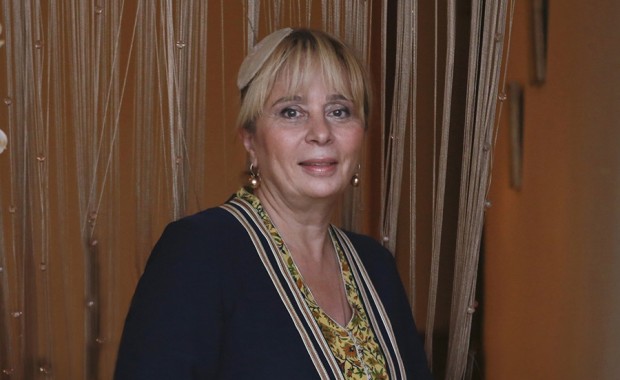
Psychologist Rusudan Pkhakadze, director of the women’s consultation center Sakhli (Home), a non-governmental organization says that the motivations behind a woman’s emigration from her home country are complex, because they are not always purely economic.
According to Pkhakadze, some women leave the country because they see working abroad as a less stressful solution to maintaining their families. And while it might be economically advantageous, children often suffer – who needs an on – screen mother?
“Children need a person by their side, someone they can touch. This is necessary for normal psychological development. It has been experimentally proven that children who grew up in orphanages receive psychological and even physiological traumas from the lack of physical contact with a parent or guardian,” the psychologist says.
Another downside of absent parents is the fact that children often become used to not working, and just wait for money to come in from abroad from their parents.
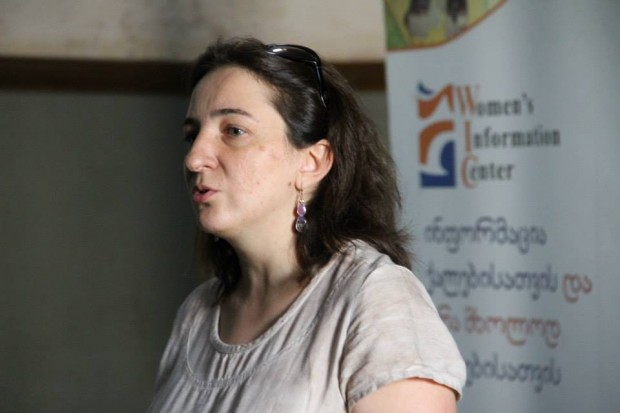
Elena Rusetskaya, director of the Women’s Information Center in Tbilisi, says that this situation can hinder development in children: “An individual must be responsible and look out for themselves…Being responsible for your own failures and being able to get up again – this is a mechanism that one must have in order to become an independent individual that is effective and capable of dealing with life’s difficulties.”
She also added that despite the difficult work and their often times shaky legal situation abroad, many women choose not to come back. One reason for this, she speculated, was that in addition to their more economically viable jobs abroad, many women also find a certain sense of freedom outside of the Caucasus: “On one hand, they might experience nostalgia, and the desire to return home. On the other hand, they know that if they do return home, they will be thrown back into a never ending cycle of family and economic concerns.”
Tatevik Bezhanyan, chairperson of Return and Defense, an Armenian organization that deals with migrant laborers returning home, notes that many workers say they would be willing to come back if only they would be able to make at least half of what they make in Russia
Bezhanyan explains that labor migration in the South Caucasus is changing the family model. The absence of husbands in the family forces women to make decisions instead of their husbands, as a result of which they become very strong.
“Women become the ‘men’ at home. They become responsible for raising and supporting the children. In the regions, all agricultural work is led by women. The social role of men in the family is becoming secondary. Women play the main role in the family, and she has more power. The father simply becomes an appendage that from time to time sends some money. The role of men in the family model is gradually becoming negligible.”
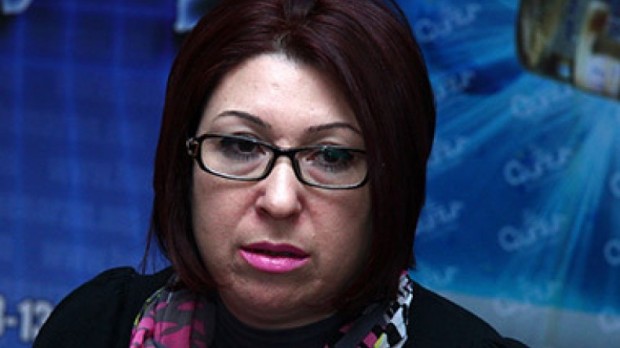
Psychologist Migrdat Madatyan, director of the psychological center Madatyan in Yerevan notes that the role of a father or mother in a family includes not only their ability to earn money, but also their ability to be an example for their children, and to participate actively in family life and problem-solving. In order to do this, they must be physically present in the family, and to see everything with their own eyes.

“Explain all you want to your children that daddy had to leave in order to make money. They won’t believe you, nor will they find it interesting. Few if any of us remember what we put on as children, but we all remember the advice of our parents. A child has to feel the physical presence of his or her parents. To see how father shaves in the morning, and how mother and father drink coffee together before work. The child has to form his or her own model of their future family, of what a family IS . . .”
“Quiet Divorces” – or – As long as he sends money home…
In Sabirabad, Narmina, a grandmother of two, says that she has already long accepted and come to peace with the fact that her legal husband has a second family in Ukraine. She knows this because every time he comes home, it is always for a very short period of time and he always buys some presents for his “wife” and child back in Ukraine. It hurts her to see this, but Narmina, even in a nightmare, wouldn’t think to divorce her husband who has not lived with her for more than 30 years.
“What are am I going to feed the kids with? Let him send me some of his earnings regularly…and the rest, well, that’s just how things are.” Her husband sends home around $200 a month.
Psychologist Madatyan explains that specialists call this a “quiet divorce.”
“We call dismembered families like this ‘quietly divorced . . .’ In one country, you might have a wife, children and other family members. But all of a sudden, a second family springs up somewhere else. The first family doesn’t talk much about this because it’s embarrassing and shameful. It’s a ‘quiet divorce.’ Even though there were no legal actions taken and the married couple did not go to court, everything is over between them . . .” explained Madatyan.
Conclusion
A large majority of those who leave their countries for work serve their families back home only as a financial resource. Unfortunately, this, at times, can also lead to the loss of an intellectual and labor resource for the country’s development. Of course, the permanent return of labor migrants depends on the political and economic situation of their respective countries, who in turn will have to present proof and opportunity to those considering emigrating that staying in the country is an economically viable option.
This article has been prepared in the framework of the project, “Taboo themes of the South Caucasus”
Gunel Movlud (Azerbaijan)
Edita Badasyan (Georgia)
Gayane Mkrtchyan (Armenia)




